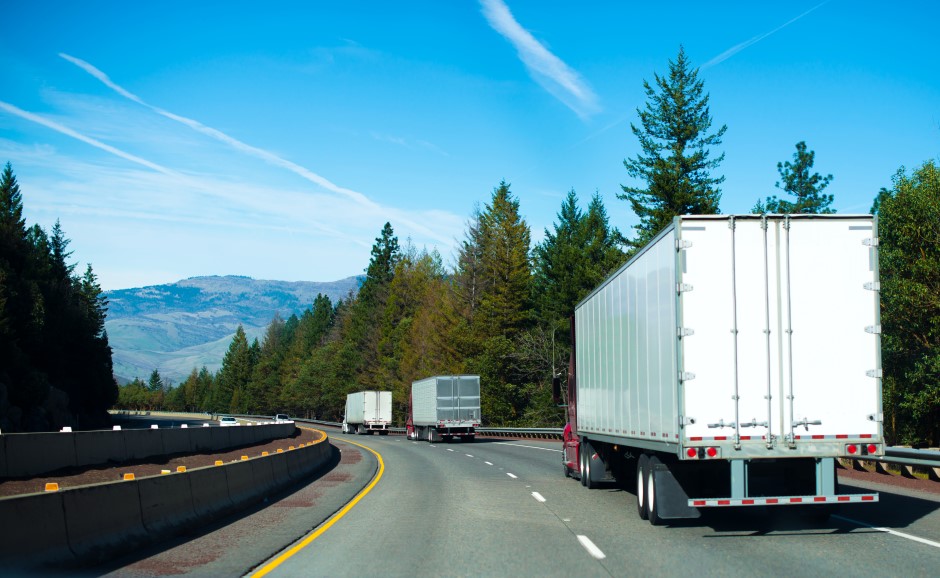One Strategy to Immediately Decarbonize Your Supply Chain
Sponsored Content

All eyes are on environmental sustainability right now, with governments, organizations, and end consumers all paying closer attention to their carbon footprints. A sector not known for being environmentally conscious — its greenhouse gas (GHG) emissions account for about 28 percent of the U.S.’ total GHG emissions — transportation, is one area that’s ripe for improvement.
“Cars, trucks, commercial aircraft, and railroads, among other sources, all contribute to transportation end-use sector emissions,” the U.S. Environmental Protection Agency (EPA) states.
Filling Empty Miles
For trucking companies, there’s a real opportunity to help reduce GHGs by doing something about the “deadhead miles” that accumulate when vehicles carry empty loads. According to Convoy’s estimates, half of the carbon dioxide (CO2) emissions generated by medium and heavy-duty truck freight come from the full-truckload sector (FTL), where 35 percent of the total mileage is driven empty.
“If you look back historically, the first time the industry really started looking at empty miles was in the 1970s after the oil shock,” Convoy’s Aaron Terrazas told Today’s Trucking. “Because oil prices rose so quickly, so high, a lot of people were looking to save money by reducing the miles.”
Since then, the industry conversation about reducing empty miles has been quieted. “I think the larger fleets kind of track it, but there is no standard measure,” Terrazas added. “Once oil prices go up, they will have to rethink this.”
Think Twice On Empty Loads
Whether returning to a warehouse to pick up a new load, heading across state lines to grab a trailer load of goods or shuttling empty dry vans between different points, the empty miles can add up quickly (and contribute to transportation’s GHG volumes).
In most cases, trucks travel empty because there are no nearby loads available from load boards for the driver to pick up that are headed in the same direction as the driver. These empty miles also hurt drivers, who aren’t earning money for being on the road.
By addressing these issues now, carriers and shippers alike can immediately begin to decarbonize their supply chains while also reducing transportations’ total carbon footprint. Reducing empty miles and filling backhauls also help the entire supply chain operate more efficiently and affordably in an environment where shipping costs continue to rise.
A Breakthrough Solution
The good news is that companies don’t have to wait for electric vehicles, alternate fuels, or advanced technologies to become commercially available. With some creative thinking and maneuvering, supply chain professionals can literally be the “heroes” for organizations that want to make progress on sustainability (but need new strategies for doing so).
Convoy’s automated reloads program, for example, yields a 45 percent decrease in CO2 emissions created by empty miles in freight. Using machine learning, the program automatically bundles multiple truckload shipments into one job, reducing empty miles and the resulting unnecessary carbon emissions.
“For decades, the miles that trucks run empty have been a seemingly intractable source of waste in the freight industry, unnecessarily emitting millions of metric tons of carbon dioxide,” said Terrazas. “More efficient route and schedule planning is the future of freight and has the potential to meaningfully reduce the industry’s carbon footprint.”
Stepping Up Sustainability Goals
Today, 74 percent of S&P 500 organizations are working toward environmental impact goals specific to sustainability and carbon reduction. And while investing in renewable energy or reducing excess packaging are common sustainability targets, transportation presents a substantial opportunity to make a difference.
Earth has warmed by 1.8 degrees Fahrenheit since the 19th century, even before industry started to boom, with the number expected to reach 2.7 degrees by 2030. With very little progress being made to reduce empty miles over the last 20 years, and with the fight against climate change more urgent than ever, now is the right time to combine technology and creativity to help reduce the nation’s empty miles and start working toward a more sustainable future.



